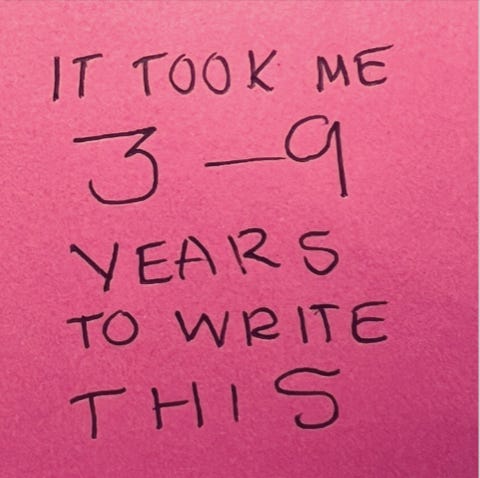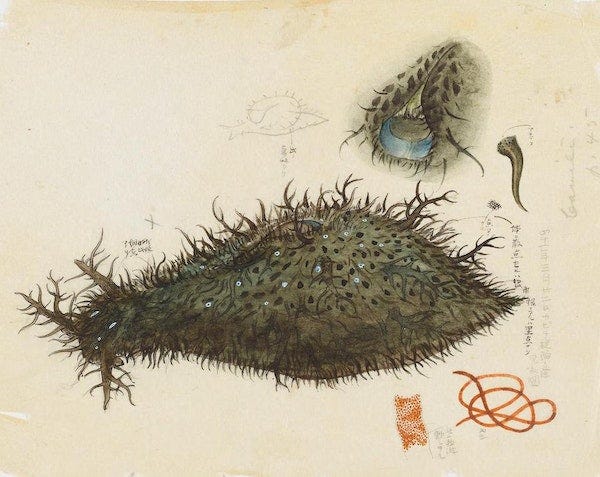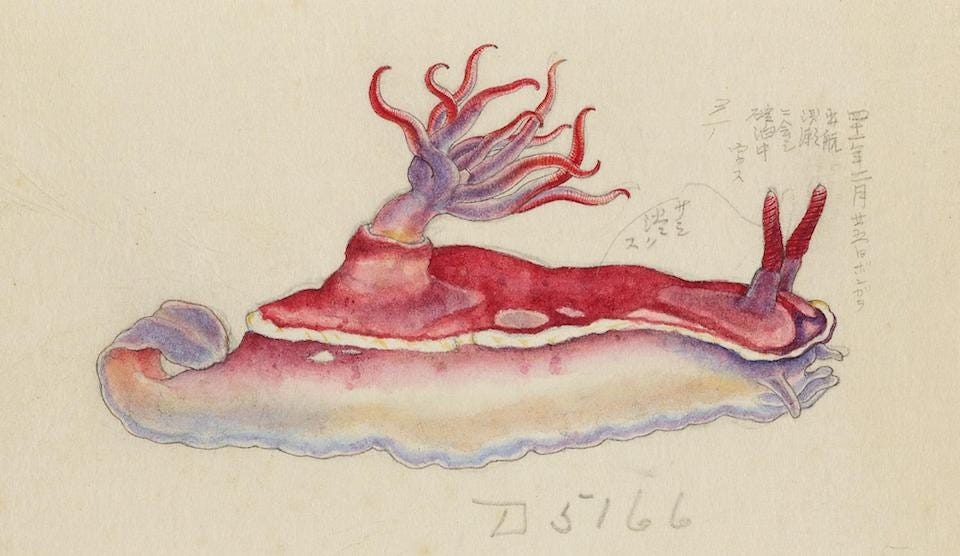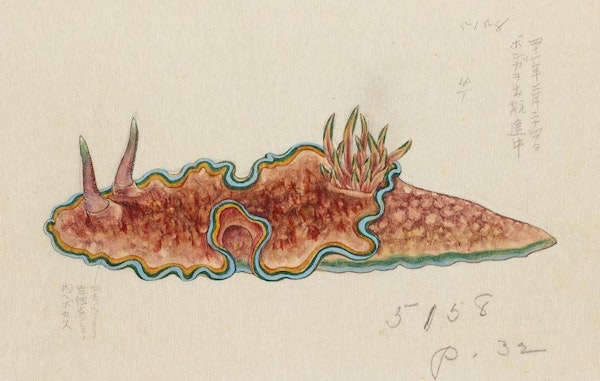Being an Accidental Asshole
Hello there :)
Welcome to issue seventy six of Manufacturing Serendipity, a loosely connected, somewhat rambling collection of the unexpected things I’ve recently encountered.
This newsletter is free to receive, but expensive to make :)
If you’d like to support me, and can afford to do so, please consider buying me a coffee. Your support means the world to me, and keeps this newsletter free for everyone.
Speaking of coffee, grab yourself a suitable beverage my loves, let’s do this thing…
Part I: Things I’ve Been Thinking About
I’m currently putting together my slide deck for the Digital PR Summit which takes place in April of this year. I’m talking about managing people, and, as a result I’ve been thinking a bunch about what “bad” management is, and what it looks like.
For clarity, I’m thinking specifically about “bad” managers (i.e. people who aren’t great at their jobs), as opposed to “toxic” managers (i.e. those who display behaviours like aggression, bullying, dishonesty, harassment, manipulation, narcissism, and so on).
Pretty much everyone I know has had a “bad” manager at some point — and, as such, most of us have a clear idea of the type of manager we definitely don’t want to be.
For example, I have a particular aversion to being micromanaged. I absolutely can’t stand it. I definitely did not want to become one of those managers.
At the same time, I’m also quick to deride those managers who fail to offer any guidance or support to team members — those that brag loudly that their team have total autonomy — which sounds great, until you realise that what this manager is actually doing is using “total autonomy” as an excuse for their dereliction of duty. I definitely didn’t want to be one of those managers either.
The troubling thing is, whilst I don’t think I was ever a full-on autonomy asshole, I’m pretty sure that at various points, I failed to offer appropriate levels of guidance and support. I became the thing I hated — the manager who leaves her people flailing.
How did I end up there?
I suspect this happened because of my aversion to micromanagement. I was so keen to ensure that I didn’t become one of awful micromanagers who was constantly breathing down the necks of my direct reports, I ended up sliding too far in the other direction.
I didn’t want to be the sort of person who told people what to do and how to do it; and so, I actively avoided doing stuff like that. Whilst I was busily patting myself on the back for not being one of those awful micromanagers, there were a bunch of people on my team who desperately needed frameworks or processes to help them do their jobs, or who needed guidance and support; and I was actively resisting providing them with those things.
I didn’t become a micromanager, but I still became one of those managers I promised myself I’d never be.
Ugh. What an asshole.
It’s an uncomfortable realisation, and I don’t think it’s something we talk about enough.
Many of the articles out there written on the topic of management lack nuance — micromanagement is “bad”; autonomy is “good”. But autonomy is only “good” if you’ve been given appropriate levels of guidance, support, and training to do the tasks you’ve been asked to complete. If you haven’t, rather than feeling empowered, I’d suggest you’re more likely to feel abandoned, or set up to fail.
I suspect that what we ought to be striving for is balance.
Rather than seeing micromanagement as “bad”, and autonomy as “good”— let’s imagine this as a spectrum, with micromanagement at one end, and autonomy at the other:
Ideally we want to land in the middle. So we’re offering frameworks, processes, guidance and support; but we’re not constantly breathing down people’s necks. People have reasonable levels of autonomy, but it’s not total.
It strikes me that if we want to grow to be “better” managers, being aware of both our feelings about particular aspects of management, and how these feelings might impact our behaviour, could be really useful.
First we need to understand how we actually think and feel about a particular aspect of management:
I know that I hate to be micromanaged, and I fear accidentally becoming that thing I hate.
Then we need to understand what’s likely to happen as a result of this:
I’m likely to swing too far in the opposite direction - i.e. I’d sooner offer no guidance or help at all, than find myself accidentally micromanaging people.
Finally we need to question ourselves:
Are you offering people reasonable levels of autonomy? Or are you just abandoning them?
Got thoughts on this, friends? I’d love to hear them!
Leave me a comment, or hit reply to this email :)
Moar serendipitous finds:
What do BuzzFeed, Rolling Stone, Forbes, PopSci and Real Simple have in common? They all know the best air purifiers, cooling sheets, gifts for mom, home saunas and cocktail kits. The only problem is, it appears they aren’t actually testing the products they’re recommending.
This is a brilliantly researched article from Gisele and Danny, and well-worth your time.
My comments are in the Google Doc linked in the Dropbox I sent in the Slack
A worryingly accurate reflection of my lived experience :(
This tweet deserves far more love than it got:

Imagine there is a machine that would give you any experience that you desired, would you plug in?
Jack Maden explores what it might mean to live a good life, and what makes a life intrinsically valuable.
I recently read a book about Epicurus’ life and philosophy, (that’s a highfalutin statement, huh? I don’t even know who I am anymore), so I found this article really interesting.
“He’s ended up with thousands of varied responses: “CLOUD iN THE SKY, DUST iN THE EYE,” scribbled Marina Abramović on a classic yellow rectangle; “Love Life,” wrote David Hockney on a bright red square; “Remember to Dream!” wrote Carrie Mae Weems in felt tip on a white note. The prolific curator chose Weems’ contribution as the title of a new book, published by HENI, that compiles 100 of these notes.”
I love this one from Ekene Ijeoma:
Check out Obrist’s instagram for more notes.
Kumataro Ito’s Illustrations of Nudibranchs from the USS Albatross’ Philippine Expedition (ca. 1908)
“The vibrant paintings below are the work of Kumataro Ito, the chief illustrator aboard the USS Albatross as it undertook the monumental task, for the U.S. Bureau of Fisheries, of surveying the aquatic resources of the 7,000 islands of the Philippines.
The Tokyo-based Ito cuts a somewhat mysterious figure on the expedition. We do know that he was on board the Albatross for a total of about 16 months, in three separate stints, during which he sketched and produced final paintings of about seventy nudibranchs, and over a hundred fishes.
In 1912, following an invitation from the director of the Philippines expedition, Ito lived in Washington DC for up to a year, where he illustrated fish from North America and the deep seas of the Philippines. Before his involvement with the Albatross, he had established his reputation as an illustrator of sea life with the publication, in Tokyo, of Fishes of Japan (1903–7). Though he was properly attributed in that book, he was very seldom so in those that followed the Philippines expedition.”
PS Need a delightful distraction to break up your day? Do a Google image search for nudibranch.
PPS I’ve previously written about another amazing nudibranch called the leaf sheep, which has the ability to photosynthesise.
Part II: Books I’m Reading Right Now
Rental Person Who Does Nothing, Shoji Morimoto (translated by Don Knotting) — Morimoto was constantly being told by his boss: “It makes no difference whether you’re here or not”, and that his presence contributed nothing to the company. Morimoto began to wonder whether a person who ‘does nothing’ could still have actual value, and indeed, a place in the world. Perhaps he could turn ‘doing nothing’ into a service? With just one tweet, ‘Rental Person Who Does Nothing’ was launched.
In this memoir, he describes his encounters with the people who hire him, and reflects on how we consider relationships, jobs, and family in our search for meaningful connections and purpose in our lives.
Empireland (How Imperialism Has Shaped Modern Britain), Sathnam Sanghera — this brilliant book ought to be required reading. Here Sanghera explores just how much of modern Britain is rooted in our imperial past:
“Empire explains why there are millions of Britons living around the world.
Empire explains the feeling that we are exceptional and can go it alone when it comes to everything from Brexit to dealing with global pandemics.
Empire explains our distrust of cleverness.
Empire explains our particular brand of racism.
Let’s face it, imperialism is not something that can be erased with a few statues being torn down or a few institutions facing up to their pasts, it exists as a legacy in my very being, and, more widely, explains nothing less than who we are as a nation.”
Part III: Things I’ve Been Watching
Mr Bates vs The Post Office (ITV) — This four-part drama tells the true story of the Post Office Scandal, one of the biggest miscarriages of justice in British history. ITV have done an excellent job here, but it’s galling to note that more than twenty years on, many of those affected are still waiting for their wrongful convictions to be overturned, and many more still have yet to receive the compensation they were promised.
Our Flag Means Death (Season Two), BBCiPlayer — Yay! The BBC have season two of the queer pirate rom-com series you didn’t realise you needed in your life, but totally do! I’m about halfway through the season, and once again, I’m loving it.
Triangle of Sadness (Amazon Prime) — On paper, I really ought to have liked this satire which takes aim at the super-rich, but honestly, it’s kinda flabby, overly-long, and just not that interesting. The first ten minutes or so are great though — I’d advise you to watch those, then skip the rest.
Part IV: What I’ve been up to…
I’ve wrapped up the latest cohort of my Ideation for Digital PR course, and I had a brilliant time running What Journalists Want from PRs, a free workshop where Britt Klontz and I interviewed journalist Surena Chande — if you missed this, drop me an email and I’ll send you the recording.
I’ve also written an article for Buzzstream which is going live soon, and recorded a new episode of the the WEM Podcast.
Plus: my friend Jude came to stay, I had coffee with Steve, and I managed to get some (but not all) of my life admin tasks done - go me!
What’s next?
I am excited about:
Continuing to prepare for the PR Pitch Writing workshops I’m running with Britt Klontz
Putting together my talk for Digital PR Summit
Emceeing WTS Fest London
Meeting Elle & Areej for lunch
Taking a trip to see my Dad this weekend
Shameless self-promotion
There’s still time to bag yourself a ticket for the PR Pitch Writing Workshop series I’m running with Britt Klontz in March! But you’ll need to get a wriggle on — ticket sales close at 11:30pm on Tuesday 27th February. Full course details can be found here & you can book your spot here.
I’ll be speaking at the Digital PR Summit in April this year, and the line-up is incredible. You can buy tickets here.
Planning on heading to BrightonSEO in either April or October this year? If so, you might like to sign up for my in-person Content Creation for Digital PR training course.
That’s all from me for now :)
If you enjoyed this newsletter, please consider sharing it, and if you would like to support me you can buy me a coffee.
Big love,
Hannah x
PS Wanna find out more about me and my work? Head over to Worderist.com









